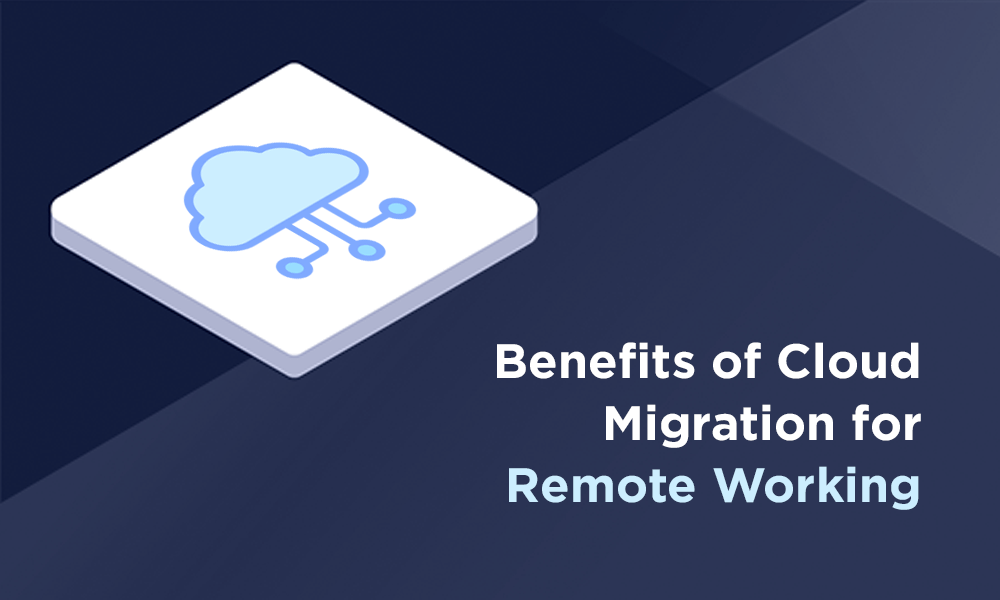The COVID-19 pandemic has many people working from their kitchens, living rooms, and even their bedrooms. Having essentially no separation between private life and work-life can affect work performance negatively. Additional responsibilities like childcare make working from home even more challenging. However, luckily there are plenty of ways to make remote working a success. One of those possibilities is migrating your business to the cloud.
While cloud migration has many benefits in general, like reducing costs, taking advantage of new technologies, and faster recovery from disasters, it also can improve remote work.
Even after the pandemic, Global Workplace Analytics predicts that 25-30% of the workforce will be working-from-home multiple days a week by the end of 2021. Rightly so, as there are many good reasons for employers and employees alike to work from home. To provide the employees with the opportunity to deliver the best work from home cloud services are a must.
The companies able to adapt to the new requirements during the COVID-19 pandemic the quickest were those who already used the cloud. Their employees could log in from anywhere and continue working uninterrupted. Other organization accelerated their migration to the cloud amidst the pandemic. Many businesses now offering remote-work for the first time have seen that this is a viable alternative, and in the future, their personnel will probably be requesting more flexibility. Therefore, migrating to the cloud will eventually become essential for any business interested in offering their people the best opportunities.
1. 24/7 Accessibility
Seamless accessibility is indispensable for remote-working. The information needed to complete a specific job has to be accessible from anywhere and not just from the office. Cloud-services allow employees to log in from their homes and access whatever information or program is needed. Administrators can additionally limit what can and cannot be accessed by certain personnel.
The cloud also enables access 24 hours a day, seven days a week. Taking assets offline for maintenance work and thus forcing a stop to some processes is no problem anymore.
2. Simplified Collaboration
Teamwork makes every business more successful, and migrating to the cloud will allow people to collaborate more easily. Whether you have multiple physical locations or your employees are working remotely from home, thanks to collaborative cloud-based tools they can work more effectively as a team. For instance, they can edit the same document simultaneously, and the document will be synchronized and saved at one point. Thus, it will always be up to date, and everyone will be able to access the same information.
3. Enhanced Scalability
As mentioned above, remote work requires employees to access information from cloud servers. An increase in remote workers also creates a greater demand to gain access to those resources. The cloud allows administrative teams to quickly and remotely scale the computing power to adjust to the new requirements.
4. Decentralized Decision-making
While working from home offers a certain freedom, it also restricts the ability of employees to quickly coordinate with other team members or their superiors. Therefore, personnel are being encouraged to make decisions based on data. Through the cloud, they can access information effortlessly and at all times, thus being able to make decisions faster and without outside approval. Eventually, this decentralized approach to decision-making will lead to a more dynamic business.
5. Improved Security
One of the most valuable benefits of the cloud is the increased security compared to onsite servers. Amongst other security measures, data encryption allows only people with certified access to see the data. While this is a massive benefit in general, it comes in handy when your employees are working from home while still needing to access information, documents, and programs.
6. Timesaving
In today's world, a business must be able to react quickly and work fast. Migrating to the cloud allows you to quickly roll out new software or provide training for newcomers and long-term employees alike. Additionally, simplified collaboration and less maintenance work on the servers will save time on the day-to-day.
7. Up to Date
This benefit ties in with security and the ability to work in collaboration. Cloud providers will manage security threats and updates, thus ensuring your data is safe at all times. Additionally, employees can access up-to-date information 24/7 from virtually everywhere.
8. Future-Oriented
The many compelling reasons named by Global Workplace Analytics show that remote working is the future, as is cloud computing. 5G networks, AI and Machine Learning, and the Internet of Things are changing the way the world works and will continue to do so. All of those innovations will likely make use of cloud computing. Thus, migrating to the cloud is the logical conclusion if you want your business to thrive and enable your employees to work as effectively as possible.
Cloud Migration and Remote Working
If you plan on offering remote work even after the pandemic migrating to the cloud will help you develop your business to be even more successful while allowing your employees to make the most out of working from home. The cloud, of course, has many more benefits than those named in this post, which only goes to show how invaluable cloud computing will become over the next decade. To find out more about which cloud strategy is the best for you and how to implement it contact VUSE now.


